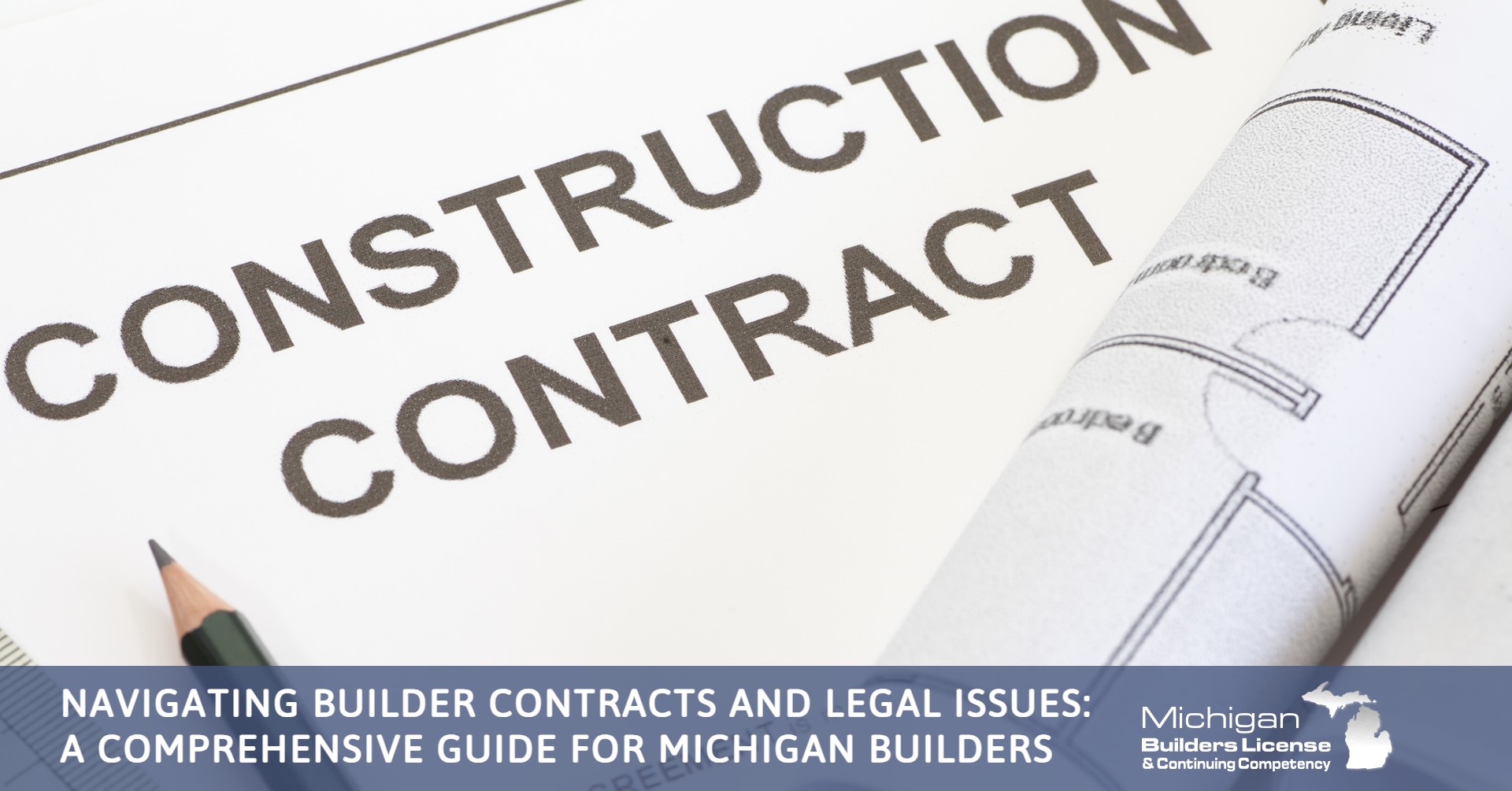Discover the essential guide for Michigan builders as we dive into builder contracts and legal challenges. Learn why they matter, what they include, common legal hurdles, and how to protect your interests. Navigate your projects with confidence.
As a Michigan builder, you're no stranger to the complexities of your craft. From constructing homes to managing projects, you wear many hats. But amidst the hustle, one critical aspect often gets overlooked – builder contracts. These legal documents can be a maze of jargon and confusion. In this blog, we'll demystify builder contracts, making them easier to understand and implement. Get ready to protect your interests and navigate legal waters with confidence.
Why Builder Contracts Matter:
A well-crafted builder contract is your compass in the construction journey. It's not just a piece of paper; it's your project roadmap. Here's why it's crucial:
Clear Expectations: Contracts set the stage by defining roles, project scope, timelines, and payment terms. No more guessing games.
Preventing Disputes: With everything in writing, misunderstandings are rare. Disputes become a thing of the past.
Legal Safety Net: Contracts protect both parties. If things go south, you have a legal ground to stand on. Essential Elements of a Builder Contract
What's Inside a Builder Contract:
Don't let the legal jargon scare you away. A builder contract typically covers these areas:
Project Scope: Clearly define the work to be performed, including construction details, materials used, and any specific client preferences.
Timelines: Specify the start date, estimated completion date, and milestones for the project.
Payment Terms: Outline the payment schedule, including deposit amounts and the timing of subsequent payments.
Change Orders: Include a process for handling change orders or modifying the original project scope.
Warranty and Guarantee: Clearly state the warranty terms, including coverage duration and any limitations.
Termination Clause: Address conditions under which either party can terminate the contract and the associated consequences.
Dispute Resolution: Include a clause that outlines the process for resolving disputes, such as mediation or arbitration.
Common Legal Challenges for Michigan Builders
Here are some typical legal challenges you might face:
Disputes over the project scope: If the project scope is not clearly defined in the contract, disputes can arise over what work is included or excluded.
Delays and cost overruns: Delays and cost overruns can occur for a variety of reasons, such as unforeseen weather conditions, material shortages, or subcontractor problems. If the contract does not adequately address these potential issues, it can lead to disputes between the builder and the client.
Quality concerns: If the construction work does not meet the agreed-upon quality standards, the client may have a claim against the builder.
Breach of contract: If either party breaches the terms of the contract, it can lead to legal action.
How to Protect Yourself
There are a number of steps you can take to protect yourself from legal challenges:
Use Templates: A standard template can help you ensure that your contracts are comprehensive and legally compliant.
Legal Review: An attorney can review your contracts and identify any potential risks or pitfalls.
Insurance:Professional liability insurance can protect you from financial losses if you are sued by a client.
Communication: Communicate regularly with your clients throughout the construction process to keep them updated on progress and address any concerns.
Documentation: Keep detailed records of all communications with your clients, as well as all project-related documentation.
Builder contracts don't have to be daunting. By simplifying the process and understanding its importance, you can build not only structures but also trust and successful relationships. Remember, a well-structured contract is your best ally in Michigan's construction landscape.
Case Study
In a recent case, a Michigan builder was sued by a client for breach of contract after the construction project was delayed by several months and cost significantly more than the original estimate. The builder argued that the delays and cost overruns were due to unforeseen weather conditions and material shortages. However, the court found that the builder had not adequately addressed these potential risks in the contract. As a result, the court ruled in favor of the client and awarded damages.
This case illustrates the importance of drafting comprehensive builder contracts that clearly define the project scope, timelines, and payment terms. It also highlights the importance of communicating effectively with clients and managing risks effectively.
**By understanding the legal issues surrounding builder contracts and taking the necessary steps to protect yourself, you can avoid costly disputes and build a successful construction business




